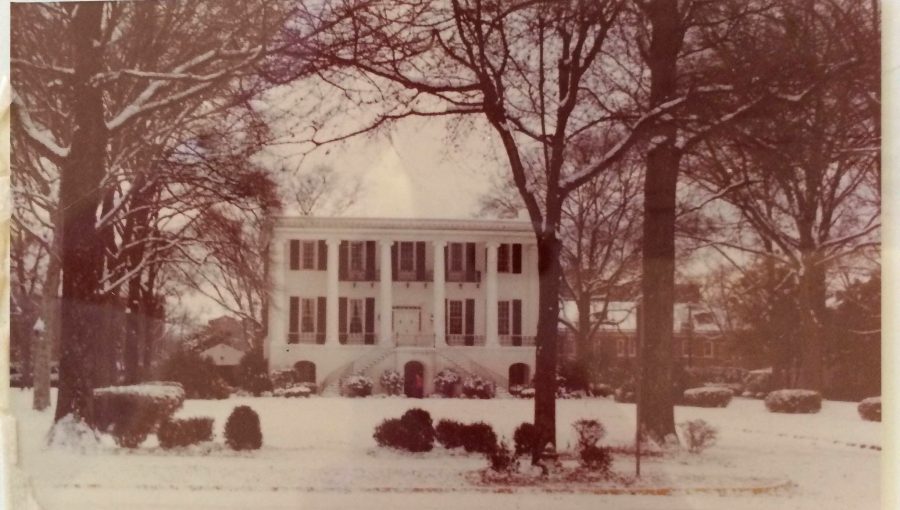As Cecilia Long leaves her communication studies class, she pauses outside the former student union, standing where her parents, grandparents and thousands of other alumni stood over the years, before crossing the street and walking across a campus now almost unrecognizable to many former students.
“When I first took my grandparents into my dorm, they were absolutely in shock that they were that nice,” said Long, a freshman majoring in communication studies. “They even commented about how nice the carpet was. I just stood there laughing because in my eyes, my Riverside dorm is small, falling apart – just not the best living conditions.”
Many students like Long came to the University because they had relatives who attended years or decades ago, and the often fond memories of these alumni can strongly influence their children’s decision to apply to their alma mater.
“I always knew this is the place for me to go because of all the memories that have been shared with me throughout my life, and I’ve been excited to experience and create my own stories,” Long said.
Both of Sam Sheriff’s parents attended Alabama in the late 1970s. Sheriff, a sophomore majoring in computer science, grew up listening to his parents’ stories of campus and their time as students. He said they seemed especially nostalgic during the campus visits and tours leading up to Sheriff’s own acceptance here.
“All the bars that they used to go to are gone, except I guess Gallettes,” Sheriff said. “Everything else is gone. One of [the places] we drove past and they were like, ‘Oh, that was such-and-such.’ Now it’s just an empty lot.”
Oliver Middleton Read is a UA alumnus and the cousin of Katherine Read, a sophomore majoring in telecommunication and film. Though he graduated less than 10 years ago, Oliver Middleton Read said he is still surprised by how much has changed in that amount of time, especially in terms of enrollment, which he said was around 20,000 when he was a freshman.
“The University draws so many kids from all over the country now,” Oliver Middleton Read said. “Most of the student housing wasn’t there when I was. The freshman-only rec center still blows my mind.”
Sheriff said according to his parents, the social scene has also changed significantly. For example, his parents’ stories of their experiences as members of greek life seem relatively tame compared to some of the stories that emerge out of the greek system today.
“From what they had been telling me about how greek life was, from what I’ve seen, it’s changed and gotten worse,” Sheriff said. “Obviously back then people still drank and had parties, but for me now it seems like if you’re not getting wasted at 10 a.m. every day then you aren’t accepted. I just shied away from that. I think I might have been a part of it, if I had gone when they did, but I decided to not.”
Through all the changes, there seems to be something about the University that remains constant and creates the camaraderie felt between current students and alumni. Oliver Middleton Read said he can still see the campus he used to know in the new University, even with the expansions and improvements.
“I think Alabama has changed a lot since I graduated, almost entirely in positive ways,” Oliver Middleton Read said. “But some things will never change, and that’s one of the reasons I loved living there.”
Sheriff said his parents believed campus and the Tuscaloosa area managed to maintain the same core and focus even while growing and expanding. He cited popular local restaurant Archibald and Woodrow’s BBQ as an example of this.
“The best barbecue place in the world still exists: it’s a shack in Northport that’s almost 60 years old; it probably has 60 years of grease,” Sheriff said. “Stuff like that is still here. It’s still the same feel of Tuscaloosa – the same soul to it.”
Long said touring the campus with her parents and grandparents was particularly interesting, because though many things had changed, they recognized familiar sights.
“They still remember the buildings where they had classes and their dorms,” Long said. “I love that the University was able to advance without taking away its history and culture.”









